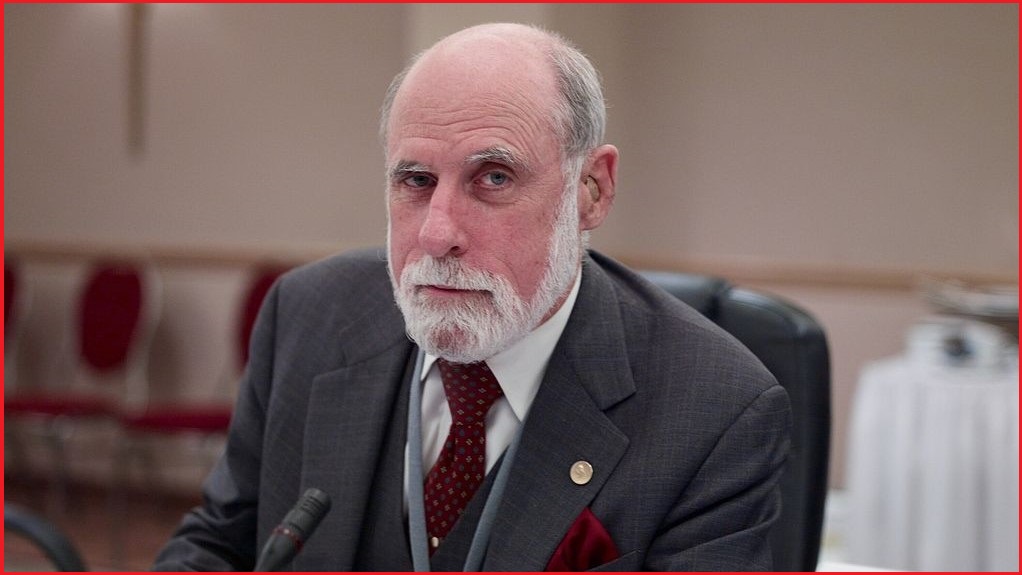Internet pioneer Vint Cerf has come out against the Australian government’s proposed News Media Bargaining Code in a blog post for his current employer, Google.
The code would allow Australian news organisations – including the ABC and SBS – to bargain with digital platforms like Google and Facebook for a share of the perceived benefits the companies receive from having news content on their sites.
Should the proposal become legislation, the local media organisations would gain more visibility around data and algorithmic changes that affect their operations.
Google has fought back through a persistent public relations campaign since the government announced the draft code in July.
Now the tech giant has trotted out its venerated 77-year-old Chief Internet Evangelist to push its corporate agenda.
“As it is currently framed, both the premise of the code and the approach it sets out are deeply flawed,” Cerf said in his post.
“Digital platforms do not owe publishers compensation for the emergence of an internet-based economy. And undermining the foundations of a democratic internet is not a sustainable solution to one industry’s economic challenges.”
Cerf was one of the fathers of the internet. He worked at the US Defense Advanced Research Projects Agency (DARPA) between 1973 and 1982, during which time he co-authored the first TCP protocol and worked to further develop the technology that made the modern internet possible.
In 2005 Cerf won the Turing Award for his contribution to computer networking – the same year he joined Google as a Chief Internet Evangelist.
Little in Cerf’s argument varies from Google’s previous statements in opposition to the media bargaining code. He says said news “makes up a tiny proportion of the things people search for online”; that “the reason news businesses are making less revenue is not because Google exists”; and that legislation drafted by a democratically elected government “[undermines] the foundations of a democratic internet”.
In the defense of his employer, Cerf even claims that the code would “would introduce bias into systems that were designed to be fair”.
Designed to be fair
Google, as it continues its stated aim “to organise the world's information and make it universally accessible and useful”, does not build unbiased, agnostic, or objective systems – that would be far less profitable.
Its systems are designed to maximise profits by selling the prediction and influence of users’ behaviour to advertisers.
In 2017, the EU fined Google for building systems that, far from being far and unbiased, “[promoted] its own comparison shopping service in its search results, and [demoted] those of competitors”.
Regulators have repeatedly gone after anti-competitive behaviour from the tech giant. European regulators hit the firm with a $6.8 billion fine in 2018 for forcing Android smartphone manufacturers to pre-load Google apps on devices.
And just last month attorneys general from 11 US states began legal proceedings against it for maintaining its search monopoly through exclusive deals that squeeze out competitors.
No news is bad news
Google has long been out-competing Australian news organisations for advertising revenue.
In an open letter published this week the heads of major Australian media companies like Seven West, News Corp, Nine, and the Guardian described a power imbalance that has occurred during the reign of digital giants like Google.
“Australian media companies can’t avoid using the digital platforms to reach news consumers,” the open letter said.
“Conversely, no single individual media business is critical to the platforms. The result is a significant imbalance in bargaining power.
“That’s why we need a News Media Bargaining Code. To survive, local news media businesses must be able to negotiate a fair contribution to the cost of creating content that directly contributes to significant local profits made by Google and Facebook.”
Google has already begun its incursion into Australian news through what Serf called “commercial partnerships”.
These provides funding for select organisations and helps lock others into its data extraction ecosystem through integration with specialised Google tools.
The company also has its own News Initiative which Google hopes will help train the journalists of the future.
Nick Hopkins, Google Australia’s News Lab Leader, said in a post about the company’s colonisation of Australia’s news media landscape, “our work doesn’t stop at how news is being reported on, we also deeply care about who is writing the news”.










